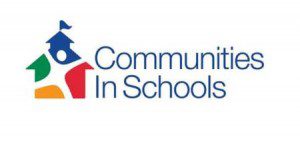This blog post was written by Emma Margraf, a foster parent and advocate
My first parent teacher conference was two and a half years ago, at a public junior high across town from my house. Jane is my teenage foster daughter, and she had been placed at my house for a couple of weeks, and I had no idea what I was getting into. Jane had never learned most of what she was supposed to; after ten years with neglectful parents and three years and 7 placements in foster care she didn’t know how to count money, measure time, or do her multiplication tables. She was in the resource room all day with all of the other children they didn’t know what to do with. I knew so little – but it was surprising to me because my first experience with Jane something they didn’t seem to see — hearing her recount every plot point in the Twilight series and falling in love with the movie Wall E. Say what you like about the vampire novels, but this version of her seemed so incongruous with the one I saw at school, where the only concerns they had were for her discipline. The conversation was about all of the things they were asking her not to do – and there was a very long list.
Over the course of the next six months she got suspended more times than I can recount; some of the suspensions meant she was sent home, and some were in school. When she got suspended in school she was set down in a room by herself and allowed to read Harry Potter books – her very favorite thing—all day. What seemed obvious to me – that whenever she was lost in uncertainty she did something disruptive so she could go read books – was not so clear to them.
A few weeks after my first parent teacher conference I asked Jane what she wanted most in her life. She said that she wanted out of special education, and she wanted to get off of medication. When I started bringing these goals up with teachers, principals, and school psychologists I got the same reaction from all of them – a mix of pity and condescension. They knew it was hard to see a child with so many limitations, and it was hard, they knew. But medication was complicated, you see, and there were these test scores to prove that she was exactly where she was supposed to be. And my favorite response: we could test her again, but we know what the outcome will be already.
The thing is, I ask questions until I get an answer that seems to make sense. It’s my nature. I kept asking why she was on these medications, and no one knew for sure. I kept asking what they were doing for her, and no one had a way to evaluate that. I kept asking what progress she could make academically and how we could go about that, and they said she would likely never learn her multiplication tables and that she didn’t need to. None of this made any sense to me – in my regular every day life multiplication tables are the one form of math I need constantly – to be a person in the world. They said she couldn’t learn.
Meanwhile, I was teaching her. I taught her to measure time and count money. I signed her up for private swim lessons and within three months her teacher said she was skilled enough to pass the swim test at camp and survive if she fell off of a boat (my father is a sailor, this has always been his measurement of swimming education success). She learned to manage her own schedule and get herself on the bus in the morning. At school, I couldn’t figure out what, if anything, they were doing. They didn’t give her homework, and she seemed to have free unsupervised time on a regular basis where she would get online and instant message me.
I emailed her teacher/special education case manager one day in total exasperation, asking him to give Jane some positive reasons to participate. He wrote back saying that he does say positive things to her everyday – but couldn’t provide any examples right then. What he could provide was a list of the negative things he needed me to support them on today. I remember the day I got that email very clearly – it was the straw that broke my back and all I could think was “This. Is. Impossible.”
So I started looking into private schools. I asked a lot of people a lot of questions. On the suggestion of a friend of the family I found an alternative school in a rural part of town in a beautiful old building with thirteen kids in the class she’d be in and an arts program that was integrated into the rest of the curriculum. When we pulled up in front of the school for a visit Jane said, “I can go to school here?”
She could, and she did. She had an amazing year there. She learned about buoyancy and displacement, built contraptions that conducted electric current, and memorized 68 lines of Shakespeare for the class play. She went on a class trip that included hiking in the Grand Canyon and a visit to the missions of Santa Barbara. When she called me from California the first thing she said was: “Mom, do you KNOW how FUN it is to swim in the ocean?!”
After the year ended, the options for private school seemed too limited, and so Jane followed many members of her class to the local public high school. Early on we discovered that she had jumped seven grade levels in reading in the last year. (When I mentioned this to her teacher from the private school he kind of cocked his head to one side and said, “Huh. I’m not really sure what that means, but it sounds great.”) She tested out of two of the three areas of her Independent Education Plan. This was phenomenal, I thought. If she can do that in a year, what else could she do?
I really should know better. In the first conference to set up her high school schedule, they told me that community college would be a great option for her, or maybe a vocational program? I said, “She’s in the 9th grade. Let’s not make that decision today. If she isn’t able to go to a four year school, that’s ok, but we’re going to give her the opportunity to try.”
And so I’m in another year of struggle. Conversations that were easy last year are like rolling a giant rock up a mountain. I switched her out of the English class that is designed to instill a love of reading – that goal has been met. I’m trying to get her out of a health class that’s not teaching her to be healthy. I took her to see the Picasso exhibit in Seattle and when she told her teachers about it they just shrugged their shoulders – a moment that was upsetting to me only because she’d been inspired by her day at the museum, listening to the audio commentary, picking out her favorite piece, and deciding that maybe Picasso was a little too moody for her.
Her teacher from last year came to the house last month for a party we had. He asked Jane and some of the other kids about school, and they said they were reading a Steinbeck novel and that it was boring. “Boring?” he asked. “You can say a lot about that story, but it’s not boring!” And then he drew them into a conversation about it, and within five minutes, their attitude was totally turned around – talking about Steinbeck became fun.
There are so many fights. Everyone one is digging in their heels: schools are great or they are hopeless. The problem is poverty, class sizes, teacher salaries, standardized testing… whatever it is, whoever is speaking insists that the problem they’ve identified is the one that needs to be fixed first. In the meantime, the clock is ticking on my child’s life and education, and I feel this incredible pressure, every day, to give her the help she’s asking me for. All I want is that five minutes where the conversation turns around and becomes what it could be, a discussion that’s fun to have.
 Matt Loschen wrote this blog post for our edCored series on education funding. Matt attended public schools in Lake Forest Park, retired from Microsoft and now volunteers at Redmond High (the school of his two daughters). If you want to be notified when new content is published in this month-long series, please subscribe to the LEV Blog’s RSS feed or once-a-day email digest.
Matt Loschen wrote this blog post for our edCored series on education funding. Matt attended public schools in Lake Forest Park, retired from Microsoft and now volunteers at Redmond High (the school of his two daughters). If you want to be notified when new content is published in this month-long series, please subscribe to the LEV Blog’s RSS feed or once-a-day email digest. Dee Klem, a parent of two in the Kent School District who runs the district’s elementary Communities in Schools’ program, wrote this blog post for our
Dee Klem, a parent of two in the Kent School District who runs the district’s elementary Communities in Schools’ program, wrote this blog post for our 
 This blog post was written by Juliet Perry, a parent in the Kent School District and 2011 Volunteer of the Year for the city of Covington, for our
This blog post was written by Juliet Perry, a parent in the Kent School District and 2011 Volunteer of the Year for the city of Covington, for our  As I sat at the dais at the beginning of discussions on budget cuts last year, I placed a note between myself and our board president that reflected the guiding principles we had agreed to over coffee. It had four simple words: “Innovate, Create, Invent, Reinvent.” These words reflect a commitment to not give up on improving the quality of education we provide for our students in spite of the cuts that lay before us. I underestimated the amount of courage it would take to remain true to those principals, and the extent of culture change those words represent from the classroom to Olympia. We must innovate and engage in continuous improvement as the stewards of our fate represented by the kids in each and every classroom in the state.
As I sat at the dais at the beginning of discussions on budget cuts last year, I placed a note between myself and our board president that reflected the guiding principles we had agreed to over coffee. It had four simple words: “Innovate, Create, Invent, Reinvent.” These words reflect a commitment to not give up on improving the quality of education we provide for our students in spite of the cuts that lay before us. I underestimated the amount of courage it would take to remain true to those principals, and the extent of culture change those words represent from the classroom to Olympia. We must innovate and engage in continuous improvement as the stewards of our fate represented by the kids in each and every classroom in the state. I am an itinerant orchestra teacher. I am currently assigned to eight elementary schools teaching sixth grade beginning orchestra. When I was hired in 2007, I was assigned to five elementary schools teaching fifth and sixth grade orchestra. Every year that I have taught in the Kent School District, not only have elementary band and orchestra been on the chopping block, but the district has threatened to cut all elementary music to save money. Last year, fifth graders lost the chance to start in band and orchestra. The district is desperate for money, and our children are suffering.
I am an itinerant orchestra teacher. I am currently assigned to eight elementary schools teaching sixth grade beginning orchestra. When I was hired in 2007, I was assigned to five elementary schools teaching fifth and sixth grade orchestra. Every year that I have taught in the Kent School District, not only have elementary band and orchestra been on the chopping block, but the district has threatened to cut all elementary music to save money. Last year, fifth graders lost the chance to start in band and orchestra. The district is desperate for money, and our children are suffering. Most people seem to pretty easily grasp the concepts of school revenues and expenses, even the seemingly arcane walls between one fund and another. It may not make sense that bond money can’t be used to staff the classroom, but those are the rules set up by law, so no reason to argue about the rationale. But after the discussion of this is done, and the discussion turns to the fund balance? Eyes begin to glaze over. People just assume that money comes in and goes out in equal portions, and that’s the end of the story.
Most people seem to pretty easily grasp the concepts of school revenues and expenses, even the seemingly arcane walls between one fund and another. It may not make sense that bond money can’t be used to staff the classroom, but those are the rules set up by law, so no reason to argue about the rationale. But after the discussion of this is done, and the discussion turns to the fund balance? Eyes begin to glaze over. People just assume that money comes in and goes out in equal portions, and that’s the end of the story. At the end of August, our school board approved and the teachers ratified a new two-year contract. The 1.9% salary reduction mandated by our state legislature was not passed down to our teachers. Kent School District, like many districts, pulled the money from somewhere else.
At the end of August, our school board approved and the teachers ratified a new two-year contract. The 1.9% salary reduction mandated by our state legislature was not passed down to our teachers. Kent School District, like many districts, pulled the money from somewhere else.